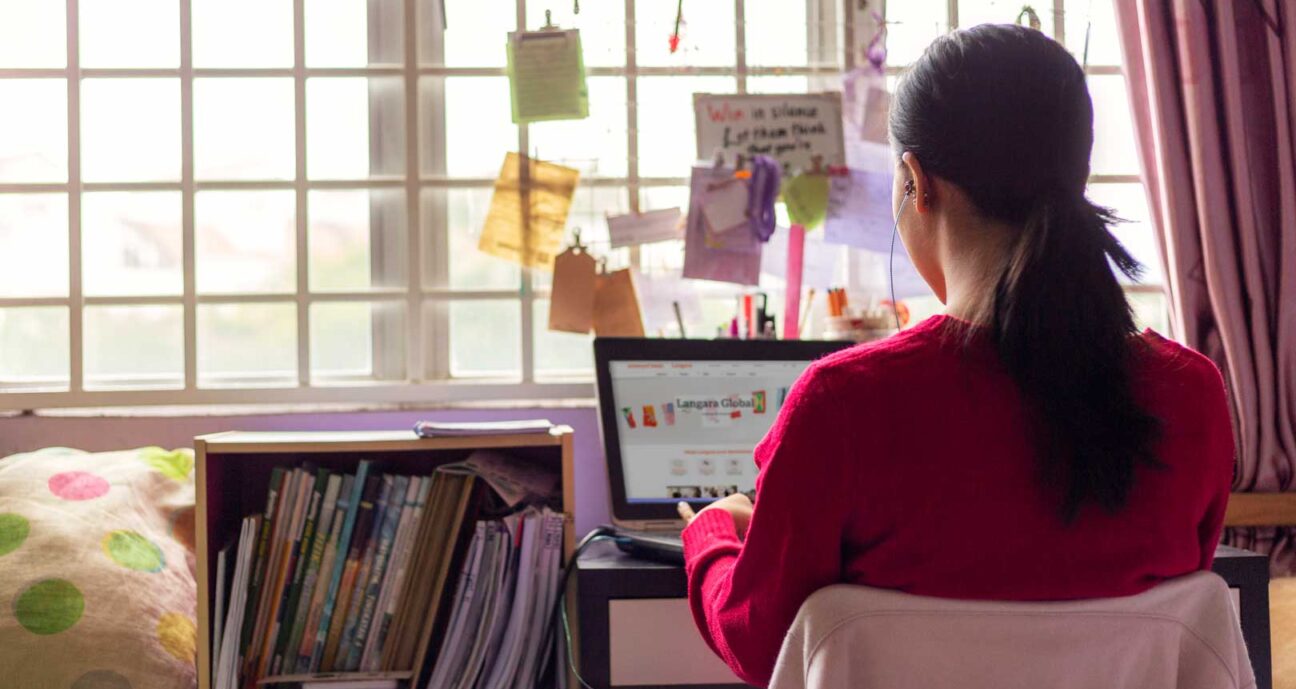Housing Resources
Searching for a new home is an exciting endeavor. Before you begin, it’s essential to equip yourself with the necessary knowledge. Here are some important information and resources to help you get started.
Off-campus Housing
Langara does not have student residences on campus. Students who are not living with family or friends in Canada choose to live in homestay or off-campus. When searching for a place to live, consider what matters most to you. Key factors to evaluate include transit routes, living costs, and neighborhoods.
Consider how far away your home is from Langara and how long your commute will be. Refer to the transportation section for more details about the transportation system in Metro Vancouver. Typically, the farther away from Vancouver you live, the cheaper the rent will be, but you have to consider whether that is worth your time, or if you’d rather live closer to Langara but potentially have to pay a bit more for rent.
Speaking of rent, the cost of living can differ significantly across various neighborhoods in the Metro Vancouver Area. It’s a good idea to estimate the average expenses for rent, groceries, and transportation before deciding on an off-campus housing opportunity. Here are some helpful resources to learn more about the cost of living:
- Cost of Living calculator
- Canadian Mortgage & Housing Corporation Rental Market Survey Data Tables
- rent Metro Vancouver Rent Report
Considering where to live is just as important as cost considerations before you start looking for a home to rent. Take time to check out different neighbourhoods in the city you want to live in. Some questions to ask yourself:
- Is the neighbourhood safe?
- Do you prefer a noisier, busier surrounding or a quiet, more secluded area?
- What are the amenities within walking distance – groceries, restaurants, household supplies?
To learn more about different neighbourhoods and their unique characteristics, you can start with these resources:
Types of Housing
When searching for a new place to live, you have several housing styles to consider:
- Apartments: These are self-contained units within a larger building. You can either rent the entire apartment or share it with a roommate.
- Basement Suites: Also known as ground or garden level suites. Located on the ground level of a house, these separate dwellings offer more privacy and can be rented alone or with roommates.
- Houses: These single-unit residential buildings can accommodate several people or a family. Depending on the size of your household, you may rent an entire house or a room within a house and share the common spaces (eg. Kitchen, living room, bathroom)
In most cases, the above options usually come unfurnished, which means you will have to find and purchase your own furniture, dishes, and other household items. If you prefer a furnished space and/or more support, consider GEC or Homestay.
GEC stands as Vancouver’s premier off-campus student residence provider, transforming traditional student housing with unparalleled comfort, convenience, and security. Each year, they warmly welcome over 3,000 students from more than 70 countries, fostering a vibrant and diverse community. With flexible monthly rentals, all-inclusive amenities, and a seamless living experience, GEC ensures a hassle-free stay. As a resident, you’ll be embraced by their inclusive community.
For those who prefer more support, Langara offers a Homestay Program. Students who participate in the Homestay Program are provided with a furnished, private bedroom within the host family home, three meals a day, and are encouraged to join in family activities and excursions.
Housing listings
The most common way to look for a place to live is to refer to websites that provide listings of available spaces for rent.
liv.rent is a trusted source that provides an online platform with verified rental listings and other resources to help you through the rental process more easily and securely.
Other websites you may find useful:
These sites/groups are provided as a resource to students. Langara does not endorse them or their rental listings.
- rentals.ca
- padmapper.com
- rentseeker.ca
- vancouver.craigslist.org
- Various Facebook Groups or Facebook Marketplace
Renting Tips and Safety
Preventing Scams
It is important to be aware of potential scams and fraudulent activities BEFORE you start searching for a new home. Take time to educate yourself and to consider ways to avoid being scammed:
- Make sure the rental prices isn’t too low or too good to be true.
- Check out the address on an online map before you contact the lister. Use street view to ensure there is an actual building or house.
- Be aware that application deposits are illegal. Request for advance payment of any kind before you see the property or before an agreement is made may be a sign of fraudulent activity.
- Never agree to renting a home or sign an agreement before you have seen the property in person. It is best to see the place with a friend, if possible.
- Be careful when providing personal information. Your information is only protected by Canadian privacy laws If you complete a tenancy application.
- When you’re ready to sign a rental agreement, be sure to review all of the terms and conditions and ask for clarification.
There are many resources available to help you be more aware and to prevent scams. Check out the following:
Things to Consider When You Start Looking
Once you are familiar with potential scams and how to avoid them, here are some things to consider as you are looking at different properties:
- Does the rent include cost of utilities (ie. internet, electricity, gas, etc)? If not, how much per month will that be in addition to the monthly rental costs?
- Will there be any rent increase within the year? (Landlords must give 3 months written notice of any rent increase and can raise rent only once in a 12-month period)
- Is a damage or security deposit required? If yes, how much? (Landlords cannot request more than 50% of one month’s rent for a damage or security deposit).
- Do I have to sign a lease? If so, how long is the lease for?
- Can I share the unit with another person, if I wanted to?
- What access do I have to laundry facilities?
- How is the unit heated?
- Is there parking available? Is there any additional charge for this?
- Are pets allowed (if you’d like to consider having a pet)?
- Is smoking allowed inside or outside on the property?
- How much notice must I give if I want to leave? (Usually, one month’s notice is all that you have to give. If a landlord gives you notice that he/she wants you to leave, it must be served in writing at least two full months before the date you must leave).
- Are there any furnishings or appliances provided?
- Are pictures allowed on the walls?
- Who will make repairs in the unit?
Things to Consider When You Are Ready to Sign a Rental Agreement
Once you have found the right place and the landlord (owner or property manager) would like to offer it to you, they will likely ask you to sign a rental agreement. Before you sign, inspect the unit and ensure everything is in working condition. If anything isn’t working or if you see damage in the unit, be sure to discuss this with the landlord and understand the plan to repair the damage before you agree to rent the unit.
You will be asked to pay a security deposit upon signing the rental agreement. Make sure you have proof that you’ve paid, either by cheque or money order, and take photos of this before you pay and request a receipt. If you pay by cash, insist on getting a receipt and keep this receipt in a safe place. You should also take photos and videos of the unit to have a record of the condition before you move it. Upon moving out, you should receive this deposit back if you have not done any damage to the unit. Having a record of the condition of the unit will also help. If the landlord is unwilling to provide a receipt, avoid renting from them. Once you sign the agreement, be sure to ask for a copy and keep this copy in a safe place for your records.
For more information on rental agreements:
Your Rights & Responsibilities
As a renter, or tenant, you have the right to:
- Safe and Healthy Living: Your landlord must make sure your home is safe and free from health risks.
- Respect: You should be treated with respect and not be harassed or have your privacy invaded.
- Correct Information: You should always receive timely and accurate details about the rental unit.
Some quick tips regarding your rental property and agreement:
- Rent Increases: rent can only be raised once every 12 months (but not in the first year of the tenancy) by a percentage equal to inflation. Your landlord must give you three FULL rental months’ notice of the rent increase. To calculate how much your landlord can increase your rent, use the BC Residential Tenancies – Rent Increase Calculator
- Quiet Enjoyment & Safety: as a tenant, you have the right to reasonable privacy, freedom from unreasonable disturbances, and exclusive use of your unit.
- Landlord Entry: To legally enter a rental unit, landlords must provide tenants with written notice at least 24 hours – but not more than 30 days – before entering. Notice must include date, time and reason for entry.
- Notice to move: Adequate notice and a valid reason must be provided to you if your landlord wants to ask you to move out. Length of notice will depend on the reason. If you want to move out, you must give one FULL month’s written notice. For more info, go to the RTB website: End a tenancy – Province of British Columbia
If you feel that your rights are being violated, you can ask for help.
- Speak with an International Student Coordinator. We can point you in the right direction for next steps.
- If you are a Langara Students’ Union (LSU) member, you may have access to the Legal Care Program which gives you access to a legal consultation service.
- Refer to the resources from TRAC, such as their free online course, Renting It Right and Tenant Survival Guide, which focuses on tenants’ rights and responsibilities in BC.
- Check out the Residential Tenancies Guide from the BC Government.
Finding a place to live in a new country or province, can be overwhelming, but with the right information and support, we are confident you will find the perfect place. It is important to familiarize yourself with the process, rules, and policies, and most importantly, to prioritize your safety. We are here to assist you every step of the way.




